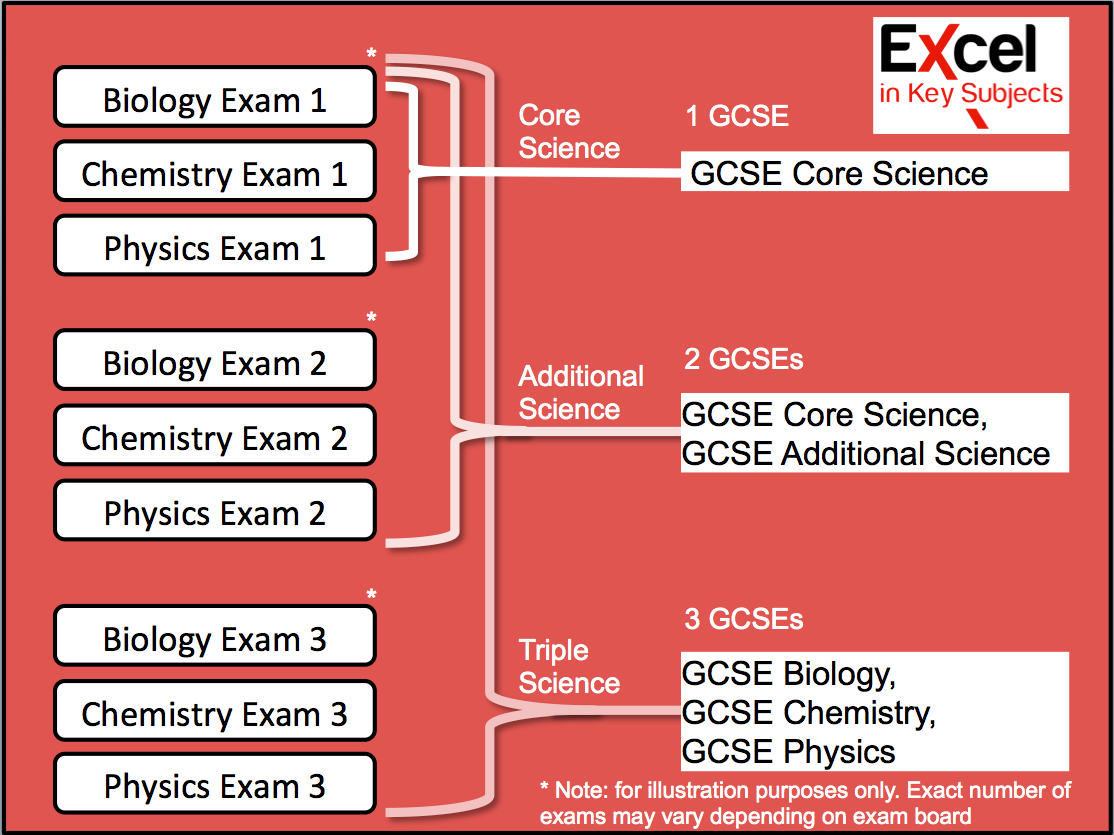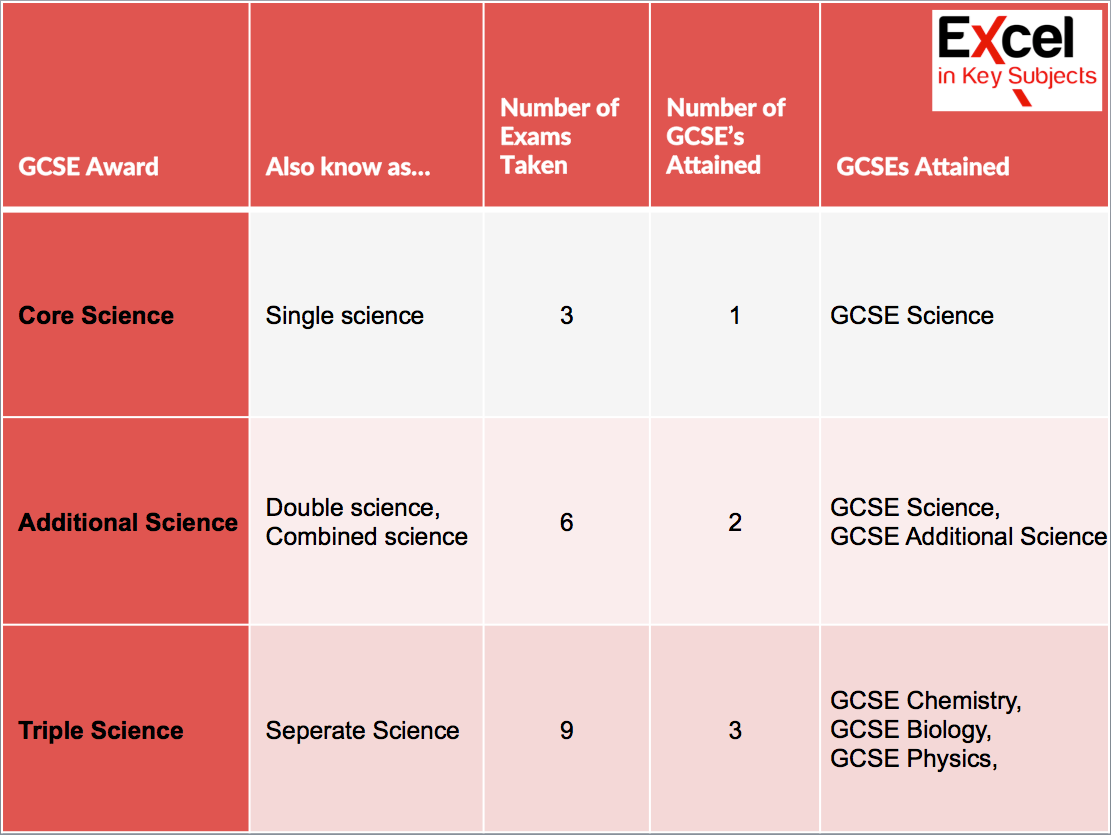It is a requirement of the national curriculum that every student studies Science at GCSE level, and that the Science curriculum studied by each student contains all three areas of Science – Biology, Chemistry and Physics.
The volume of the material studied and how demanding the content is, determines which certificate a student is awarded at the end of the course.
Every child has to study Biology, Chemistry and Physics up to and including GCSE level.
The depth to which they study each the sciences determines whether they are studying Core (single), Additional (double) or Triple (separate) Science – a student who studies for Triple Science has covered a higher volume of material in each of the sciences than a student who studies for Core Science.

Naming
Until recently the GCSE Science courses used to be called Single, Double and Triple (separate) Science. Most people still use Single to denote Core Science, double to denote Additional Science but the word triple or separate science remains largely unchanged. I will explain below how the new system works.

Core Science (Single)
In Y10 a student will do a few modules (usually about two) of Biology, two modules of Chemistry and two modules of Physics. The totality of all these constitutes Core Science (formally called single science – most people still call it that). The student will then sit exams at the end of the course, which will consist of all the three Science Subjects – Biology, Chemistry and Physics. They will be awarded one single grade called Core Science. They may know the marks they have scored in each of the three Science areas but there will not be a grade for Biology, Chemistry or Physics. There will be just one exam grade for Core Science – which can be anything from grade 1 to 9 grade. The grade which is awarded is determined from the average of marks scored in all the three Science subject areas. This is done by every student who is taking GCSE Science – a compulsory requirement.
Additional Science (Double)
In the second year of GCSE – Y11, the student does what is called Additional Science. Like the Core Science – it also contains all three areas of Science – Biology, Chemistry and Physics. It is identical to Core Science apart from the fact that the content is usually a little more challenging or consists of different units of Biology, Chemistry and Physics from those of Core Science. The student is once again awarded another grade at the end of the Additional Science exam, which again can be 1 to 9. Up to 70 percent of 16 year olds take the above – Core and Additional Science so they end up with two grades for Science – One for Core Science and the other for Additional Science. Most students stop at this point – with two grades for Science – one for core and the other for Additional Science.
Triple (Separate) Science
In Y11, a small minority of students, after completing the Core and Additional Science Units, will then go on to do further units of Biology, Chemistry and Physics. This group is the triple (separate) Science group. Because they have studied more Science modules, they are awarded a separate grade for each Science – Biology, Chemistry and Physics.
Is Triple Science better?
The Triple Science better prepares students for A-level in Science subjects. Although the Triple Science option equips young people better for A-level studies in Science subjects, the Additional Science is sufficient for a student to study A-level in any of the Science Subjects. I have taught students before who have, despite studying just the double science option, gone on to achieve top grades at A-level in Physics, Chemistry and Biology.
Many parents feel very strongly that their sons and daughters ought to be taking the Triple Science option, as opposed to the Core and Additional Science option. The truth of the matter is that it is ok for a student who is unlikely to do A-level in Science Subjects to take just the Core and Additional Science option. It is also easier to achieve the top grades in the Core and Additional Science than in Triple Science. This is because the extra modules studied by Triple Science students are more challenging. My advice is that it is better for a student who is unlikely to pursue A-level Science subjects to study Core and Additional and achieve an A or A* than for the same student to do the triple and end up with a B grade or worse.
Please see below for links for related article for this age group.
https://excelinkeysubjects.com/key-stage-3-ks3-key-gcse-perhaps-level-success/